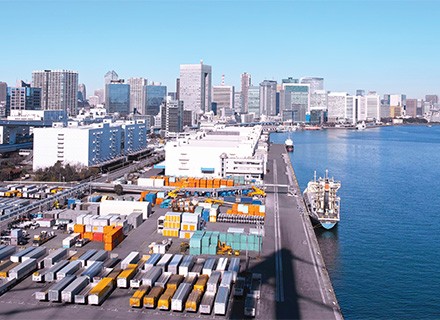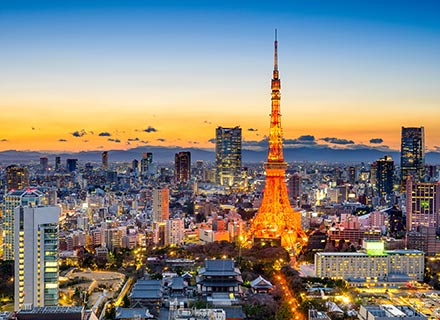After the Meiji restoration, Japan’s social and economic growth came in a sharp focus: when it became the world’s first ‘non-Western great power’, much influenced by the success of the West—and then, the third largest economy behind the United States.
This was made possible because Japan’s early post-war years were meaningfully capitalised on: Significant investments were made in chemicals, coal, steel, power, and the education system was reinforced to achieve the world’s highest literacy rate. (Discipline was systematically encouraged in schools to form a potent workforce in the future.) Into these fervid economic conditions a carefully structured system was seen coming together. This powerful economic transition was manifested to preserve the country’s political standing, which was loosely administered during the Edo period as a result of isolation (or sakoku) from all foreign nations.
Japan, then, re-emerged with a compelling history and a dominating economy. With an improved version of itself now—and amid ongoing trade tensions between the United States and China, the question is: how will the Japanese economy be calibrated by economists in 2019?
The Bloombergquint wrote: “2019 looks like a crunch year” for Japan. Toward the end of last year the International Monetary Fund report predicted the country’s global growth in 2019 might reach 3.7%—which is revised from its initial forecast of 3.9% growth. This means, “the recently announced trade measures, including the tariffs imposed on $200 billion of US imports from China,” is changing the economic dynamo for several Asian countries, including Japan, where they are “projected to experience somewhat weaker growth in 2019 in the aftermath of the recently announced trade measures.”
 Upon such sentiment, Japan will reflect a 0.9 percent drop in its economic growth because the “medium-term prospects are impeded by unfavourable demographics and a trend decline in the labour force,” the report suggested.
Upon such sentiment, Japan will reflect a 0.9 percent drop in its economic growth because the “medium-term prospects are impeded by unfavourable demographics and a trend decline in the labour force,” the report suggested.
Last year, Reuters’ poll of economists worried that the Japanese economy might hurt as a result of this political hysteria. When the economists were asked to identify a potent contributor to Japan’s possible economic flux in 2019—16 of them voted “US-China trade friction,” 10 suggested “China’s economic slowdown,” and eight said “New Japan-US trade negotiations.”
It seems Trump’s trade war is undoubtedly a distinct drawback for Japan. More so, because the manufacturers in China vastly use parts and equipments from Japan to assemble smartphones and computers—and in the same way the Japanese factories in China ship goods to the United States. What’s more important is, “American duties lodged against China have hit some of the machine tools that Mitsubishi Electric exports to the US from the mainland,” suggesting that they have no choice but to relocate their production center or change suppliers. Against this background, Mitsubishi Electric now manufactures machine tools for the United States in Japan.
For Trump, this chain reaction seems satisfactory as he made no mention of the matter with regret. It’s perhaps complex, and certainly more political, for Japan, to dismiss the consequences of the trade war on its economic activities. While high tariffs on Chinese exports is impairing China’s diversification in global supply chain, “potentially the biggest risk from intensified US-China trade tension is the indirect impact on corporate sentiment and capital expenditures,” Hiroshi Ugai, chief economist at JPMorgan Securities Japan, said.
What’s clear is that nearly 60% of Japanese companies can expect their annual earnings to sink, reported Nikki Asian Review last year. The poll found that “top executives from 11.4% of the responding companies see definite harm to earnings, while 49.1% report a likely negative impact,” with “no respondent forecast receiving any benefit from the trade disputes.” After all, “there are no winners in reciprocal tariff levies that stem from protectionism,” Hitoshi Ochi, president of Mitsubishi Chemical Holdings, recounted. This probably explains why Japan is heading toward successive risks from the warfare, but the repercussions of it might not persist forever.
For onlookers to describe Japan’s ceremonious rising in its post-war years and the unwanted backlash it’s facing because of the current conflict is disturbing. Once again, not many experts are comfortable with how the situation is shaping up for the country’s economy. On the face of it, some economists argue that Trump’s combative strategies might predate the country’s economic growth, while others remain positive about its expanse in the long run.
Atsushi Takeda, an economist at Itochu Corp. in Tokyo, told Bloomberg: “There’s no change to the fact that we’re seeing fairly stable growth.”
“In the long term the fundamentals are still firm.”

